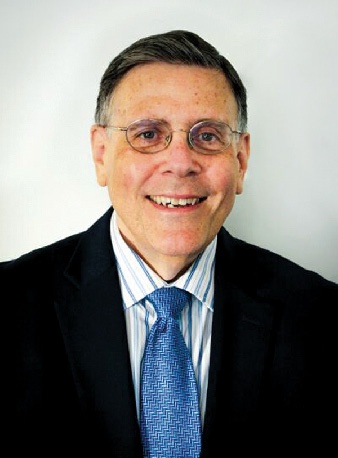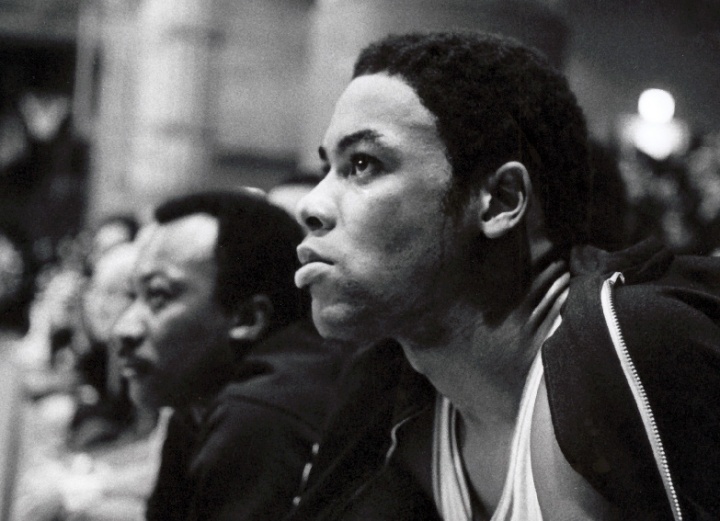Columbia College | Columbia University in the City of New York
Remembering Jim McMillian ’70’s Finest Game
March 5, 1968, was one of my happiest days at Columbia, and I largely have Jim McMillian ’70 to thank for it.
That was the day of the one-game playoff for the 1968 Ivy League men’s basketball championship between Princeton and Columbia, which had finished the season tied atop the league standings at 12–2. The Ivy League powers-that-be did Columbia a favor and in their infinite wisdom chose Alumni Hall (now Carnesecca Arena) on the St. John’s campus in Queens as the supposedly neutral site for the showdown, and Lions fans made up the vast majority of the announced crowd of 6,005.

KELLY CHAN BC’17
As a first-year sports reporter at Spectator, I didn’t get to cover the game; that plum assignment was reasonably enough kept by one of the paper’s two sports editors. That was fine by me. I could then go as a fan, and scream my head off cheering the Lions on to victory.
I donned my Columbia sweatshirt (I hope it was Pantone 292; I know it was light blue) and boarded one of the many buses that made the 18.7-mile trip from Morningside Heights to Jamaica. I remember there were metal barricades that separated the spectators from the immediate court area and the team benches, and as I was on one of the early buses, I was lucky enough to snag a front row seat behind the barricade opposite the Columbia bench.
The game itself is a blur. I recall that Columbia started quickly, turned back several Princeton rallies in the first half and pulled away in the second half. I went to the Spec archives, and the start of the story by David Rosen ’69, LAW’72 says all you really need to know: “Columbia trampled Princeton 92–74 ...”
Leading the Lions was McMillian, the team’s star sophomore who had been a highly recruited schoolboy at Brooklyn’s Thomas Jefferson H.S. and had chosen Columbia over many schools with more prominent basketball programs, including St. John’s. The 6-foot-5 McMillian posted team highs of 37 points and 10 rebounds and also played solid defense against Princeton’s star forward, John Hummer, who had a 3-in. height advantage.
I remember celebrating at St. John’s, then riding with a happy bus-load of fans back to a campus, where a larger celebration was in full swing. Who could know that less than two months later the euphoric campus and indeed the entire Columbia community would be torn apart by the demonstrations of Spring ’68 and their aftermath?
That playoff win was the signature game of McMillian’s out-standing Columbia career, during which he led the Lions to a combined record of 63–14 record and scored more points — 1,758 — than any other player in Columbia history. His mark has since been surpassed by Buck Jenkins ’93, but it took Jenkins four years to do it compared to McMillian’s three (freshmen were not eligible to play varsity ball during McMillian’s era). For those three years, I probably spent more time watching McMillian play basketball and writing about his exploits than I did in Butler Library, and I can’t say I regret it.
McMillian went on to play nine seasons in the NBA, winning a championship with the Los Angeles Lakers. I went on to become a sports writer for the Associated Press and was happy to catch up with McMillian during the Lakers’ title-winning season and later when he played for the New York Knicks.

CCT archives
McMillian, who was described by teammate Jonathan Schiller ’69, LAW’73, now chair of Columbia’s Board of Trustees, as “a quiet and powerful leader ... a supportive and close friend to each of his teammates,” died on May 16, 2016. May he rest in peace. (See Obituaries.)
We are pleased to welcome Jill Shomer as our new managing editor. Jill, who began her Columbia career on June 1, comes to us from Bonnier Corp., where she had overseen print, web and digital production for Popular Science since 2010. Her editorial experience also includes work at Women’s Health and Scholastic as well as a previous stint with Popular Science.
A graduate of George Washington University, Jill will be involved in all phases of CCT as we continue to build our brand, develop a more interactive online presence and explore editorial opportunities to engage and inspire our community.

Editor in Chief
Issue Contents
Published three times a year by Columbia College for alumni, students, faculty, parents and friends.
Columbia Alumni Center
622 W. 113th St., MC 4530, 6th Fl.
New York, NY 10025
212-851-7852
cct@columbia.edu
Columbia Alumni Center
622 W. 113th St., MC 4530, 4th Fl.
New York, NY 10025
212-851-7488
ccalumni@columbia.edu

